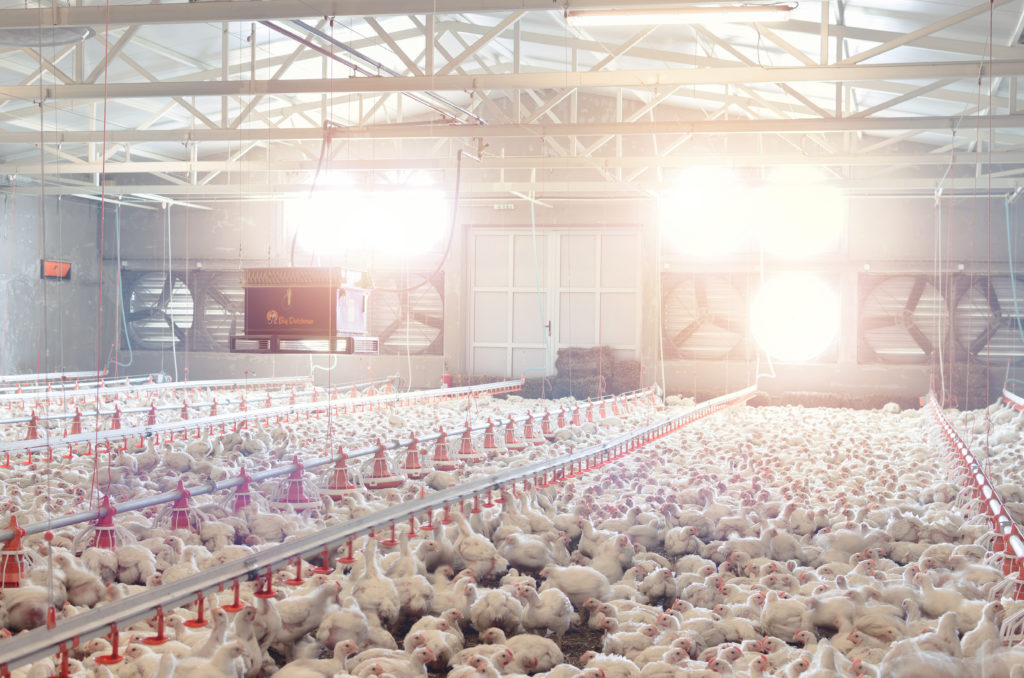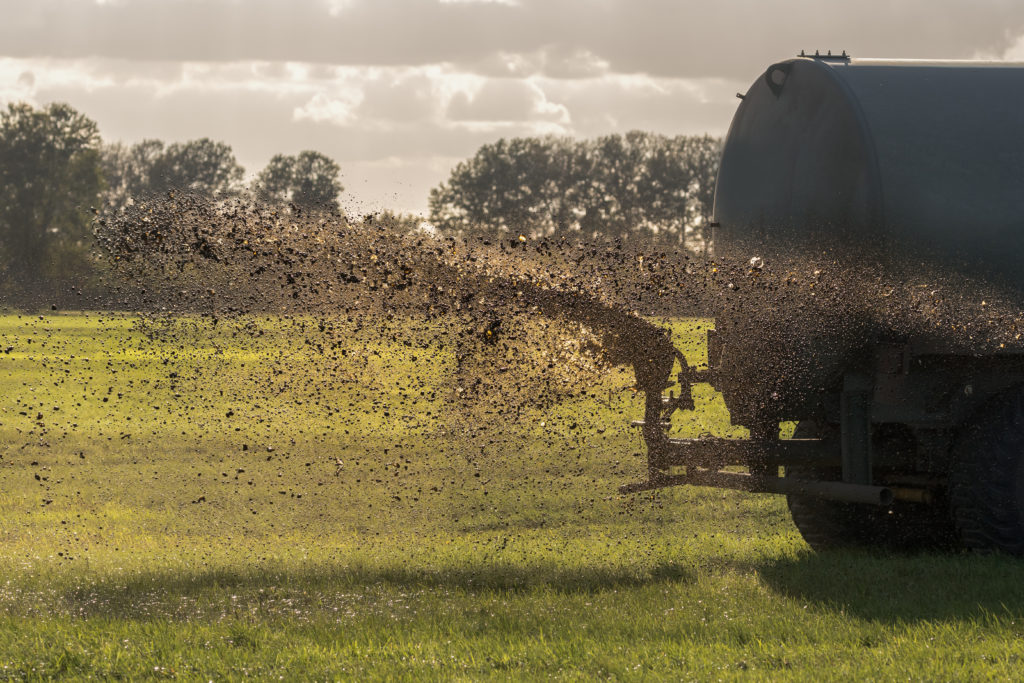Concentrated animal feeding operations (CAFOs), often referred to as factory farms, are impacting rural communities’, air, water, health, and wellbeing. The proliferation of factory farms has completely changed the rural landscape, and many small and medium-sized farmers are increasingly finding it more difficult to compete in a policy and economic system that favors huge operations.
CAFOs are also an environmental injustice that disproportionately impacts Black, Indigenous and communities of color and lower-income rural communities. It is not uncommon for these communities to be on the frontlines of CAFO expansion with few opportunities under the law to resist their construction.

The inside of a broiler chicken CAFO.
Right To Farm Laws & Community Resistance:
Right to farm laws, which were originally intended to protect farmers, now protect corporations at the expense of rural communities. These laws, which are enacted in all 50 states, stop communities from taking action by preventing individuals from bringing nuisance lawsuits against CAFOs when their air is toxic, wells are poisoned, and their property values plummet.
Communities, including Tribal Nations exercising their nation sovereignty, have a long history of pushing back against the intrusion of CAFOs through local governance and community organizing. In some states, that resistance has reached the state legislature with the introduction of moratoriums on the construction and expansion of new and existing CAFOs.
Moratorium Bills:
Moratorium bills that would prohibit the construction of CAFOs over a certain size have been introduced in several states.
In Oregon, where a proposed mega-dairy with 30,000 cows is threatening a primarily Latinx community, a coalition has introduced a moratorium on dairies with over 2,500 cows. Calls to expand that moratorium to all CAFO facilities are increasing as the agribusiness industry eyes Oregon for increased development due to the state’s lax regulatory environment. For example, a 3.5-million broiler chicken CAFO for Foster Farms is also being proposed just 400 yards from the banks of the North Santiam River in the Willamette Valley, in a community known for its rich history of small and medium-sized farms.
Iowa, long an agricultural state, has over 13,000 CAFOs. For years, advocates have pushed for a CAFO moratorium in the state to prevent the continued growth of CAFOs into Iowa rural communities.
A moratorium on the permitting of pollution discharge permits for industrial poultry facilities was also introduced in Maryland and a partial moratorium on hog CAFOs was introduced in Ohio.
At the national level, Senator Cory Booker has introduced the Farm System Reform Act, which would prohibit construction of facilities with 700 or more animals and would provide a path to phasing out existing CAFOs.

Waste from CAFOs often are sprayed onto nearby fields frequently in excessive amounts resulting in manure runoff and polluting ground and surface water.
Communities are in Support:
The push for moratoriums aligns with public concern. Polling indicates that a majority of the American public supports reining in CAFOs to protect rural communities and small farmers. The American Public Health Association also has called for a moratorium on new and expanding CAFOs..
In Iowa, the CAFO moratorium is broadly supported by Iowans, who are facing high levels of nitrate from manure runoff in their rivers, lakes, and wells. Because mitigation efforts are behind their promised timeline, advocates feel that a moratorium is necessary to stop continued pollution from these operations
Corporate-controlled large-scale livestock operations, especially poultry, are also notoriously abusive of the contract growers that raise the animals. The White House has recently made efforts through a series of executive orders to crack down on this abuse. Poultry growers are also pushing back against some of these practices themselves, despite possible retaliation for these activities.
—-
If you are a state legislator interested in working on factory farming issues, reach out to us at [email protected]

